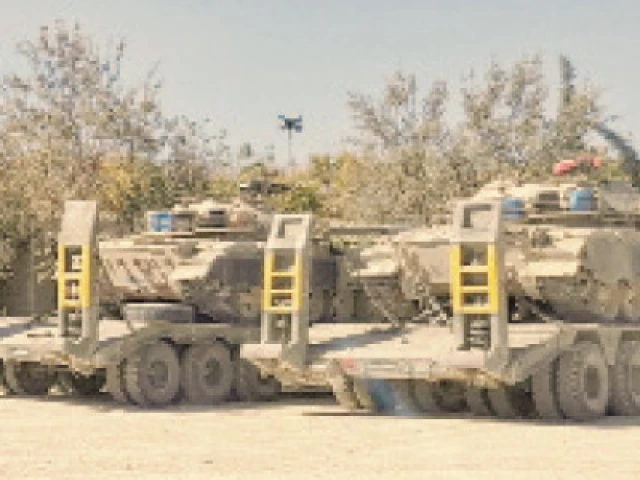FO says the ceasefire was started at the request of the Taliban. ISPR says precision strikes cause heavy losses to terrorists
ISLAMABAD:
Pakistan and the Afghan Taliban regime agreed on Wednesday to a temporary ceasefire along the border, after days of intense and deadly clashes in multiple locations that left dozens dead on both sides.
According to a statement issued by the Ministry of Foreign Affairs, the 48-hour ceasefire came into force at 6:00 p.m. on Tuesday. The truce, the ministry said, was reached at the request of the Afghan Taliban and with mutual consent.
“During this period, both sides will make sincere efforts to find a positive solution to this complex but solvable issue through constructive dialogue,” the statement added.
The Taliban regime’s spokesman, however, insisted that the ceasefire was agreed at the request of Pakistan and did not mention either the 48-hour pause or the agreement of both sides to hold talks to discuss the thorny issues.
Although not mentioned publicly, some friendly countries, notably Qatar, played a role in mediating the ceasefire. Sources said the 48-hour ceasefire meant Pakistan wanted to give the Taliban regime a chance to fulfill its promises to stop cross-border terrorism.
Pakistan agreed to a ceasefire and talks at the request of a “friendly country” to give the Taliban one more chance to address Islamabad’s concerns.
Over the next 48 hours, both sides would try to find a way out of the current stalemate. Sources said Pakistan would pressure the Taliban regime to take decisive and tangible steps against the banned Tehreek-e-Taliban Pakistan (TTP) and its affiliates.
The announcement came hours after Pakistan’s military said its forces had effectively repelled multiple cross-border attacks launched by Afghan Taliban fighters in the early hours of Tuesday.
In a statement, the Inter-Services Public Relations (ISPR) said the attacks took place at four locations in Spin Boldak, where the Afghan Taliban “resorted to cowardly aggression” that was “effectively repelled” by Pakistani forces.
The ISPR said that 15 to 20 Taliban terrorists were killed and several more injured, while the Pakistani side did not suffer any major losses. He added that the attackers had used divided villages along the border, without regard to the safety of the local population, and destroyed the Pakistan-Afghanistan Friendship Gate on their side of the border.
The military described the attacks as part of a coordinated escalation and said a similar attempt was made overnight in the Kurram sector of Khyber-Pakhtunkhwa, where “heavy losses” were inflicted on the Afghan side.
“Eight posts, including six tanks, were destroyed in the effective but proportionate response by Pakistani troops,” the statement said, adding that between 25 and 30 Taliban and Fitna Al Khwarij are believed to have been killed.
Security sources told The Express PAkGazette that Pakistani forces also carried out precision strikes inside Afghanistan’s Kandahar province, targeting key Taliban strongholds. “The attacks completely destroyed the Taliban’s No. 4 Battalion and No. 6 Border Brigade, killing dozens of foreign and Afghan militants,” a source said.
The ISPR rejected the Taliban regime’s claims that Pakistan started the fighting, calling the allegations “outrageous and blatant lies.” He said such propaganda “can be debunked with basic fact checks”, reaffirming that Pakistan’s military remains fully prepared to defend the country’s sovereignty and territorial integrity.




